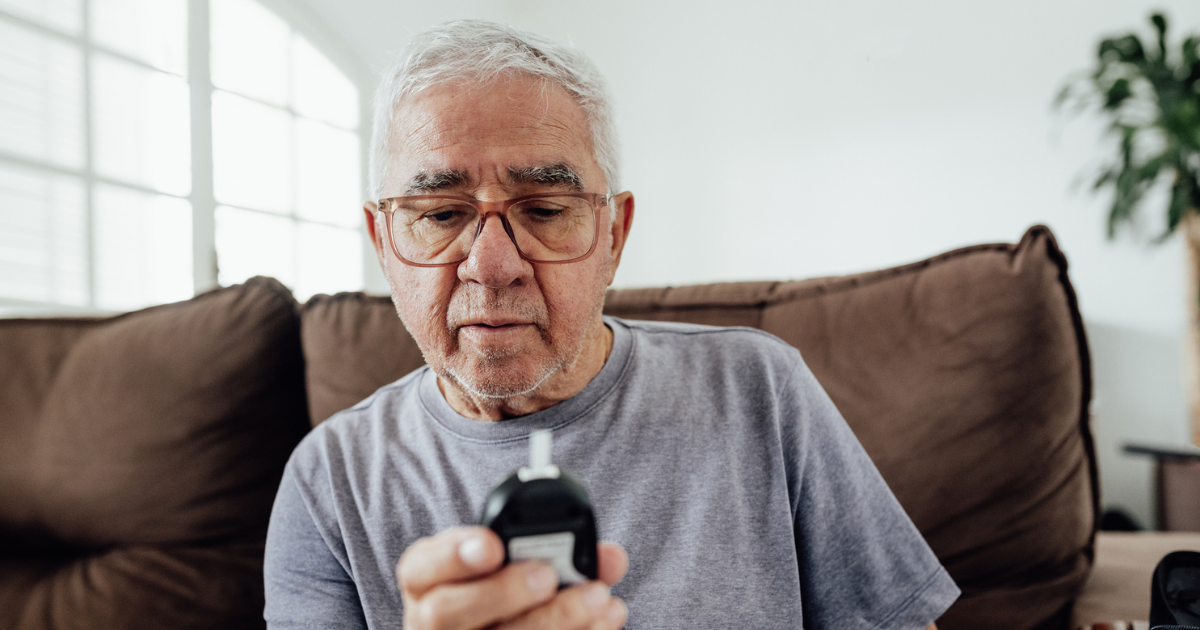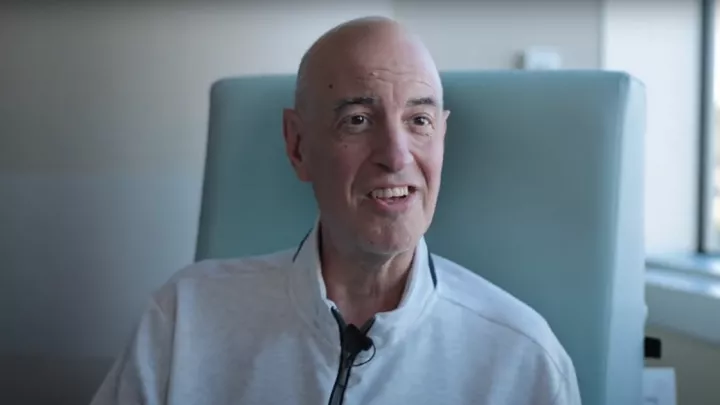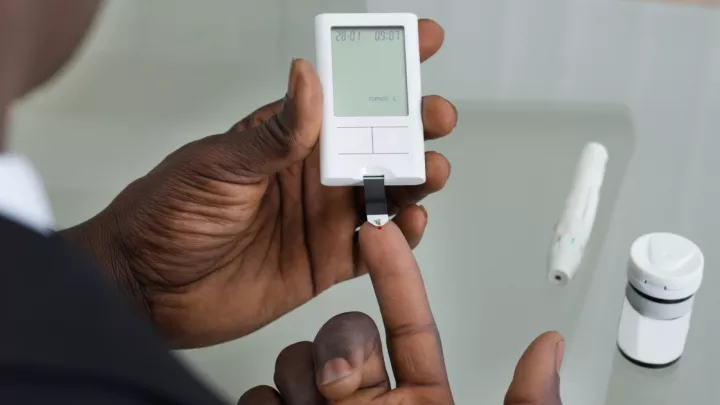Can pancreatic cancer cause diabetes?

Current research shows that pancreatic cancer can indeed cause diabetes. Although the link between the two diseases is complex, ongoing studies help provide insights that could improve detection and treatment.
Research studies suggest that:
- New-onset diabetes in people over age 50 who have a low body mass index (BMI), are losing weight or do not have a family history of diabetes may be an early symptom of pancreatic cancer.
- A sudden change in blood sugar levels in people with diabetes who previously had well-controlled diabetes may be a sign of pancreatic cancer.
- While pancreatic cancer can cause diabetes, the reverse is also worth noting. People with diabetes, especially long-standing diabetes, have an increased risk of developing pancreatic cancer.
- About 80% of patients with pancreatic cancer have glucose intolerance.
“We know with certainty that pancreatic cancer causes diabetes,” says pancreatic oncologist Kelsey Klute, MD. “About two-thirds of people who have newly diagnosed pancreas cancer have some degree of diabetes with a relative underproduction of insulin. Many have had long-standing diabetes, but we think about half of those have sudden, new-onset diabetes. These patients seem to go from having no history of diabetes to all of a sudden they need insulin, so it's a very different kind of picture than how diabetes typically develops.”
Around half of Dr. Klute’s newly diagnosed patients with pancreatic cancer are shocked to learn that they also have diabetes.
How does pancreatic cancer cause diabetes to develop?
When a person develops pancreatic cancer, the islet cells in the pancreas that make insulin are affected, causing them to function abnormally. The result is less insulin production. When pancreatic tumors lower insulin levels in the pancreas, it can lead to rapid onset of diabetes that is difficult to control with standard diabetes medications.
Although much less common, diabetes that is linked to pancreas cancer is classified as Type 3 diabetes and is slightly different than Type 1 or Type 2. “The biology of it seems to be different,” adds Dr. Klute. “It's much more similar to diabetes that develops in people with chronic pancreatitis or cystic fibrosis, where the isle cells are slowly being destroyed over time. As the pancreas cancer is treated, this type of diabetes typically gets better and is easier to control.”
Additional observations and red flags that may be warning signs:
- Abnormal blood sugar tends to begin two to three years before the diagnosis of pancreatic cancer.
- The progression from no diabetes to prediabetes to a diabetes diagnosis happens quickly. This process is much quicker than for the average person with Type 2 diabetes.
- The development of diabetes in people who are not overweight or obese; instead, they’re losing weight. Typically, people who develop Type 2 diabetes gain weight as their blood sugar increases, but people who develop pancreatic cancer and the nuances of diabetes leading up to a cancer diagnosis tend to lose weight.
Pancreatic cancer symptoms that sometimes get overlooked
In addition to the principal risk factors and symptoms of pancreatic cancer and the role genetics play in the development of the disease, several other symptoms may be overlooked. These lesser-known symptoms may become noticeable before a cancer diagnosis:
- Weight loss.
- Changes in taste or smell. Some patients report that food doesn’t taste right, or they notice that they are newly sensitive to certain smells that didn’t bother them before.
- Mood disorders or symptoms of depression.
- Loss of muscle mass, which can cause significant fatigue.
- Loss of appetite.
Why these symptoms happen is relatively unknown, but it is thought that the systemic impact of the tumor may drive these neurological and psychological changes.
Newly diagnosed with pancreatic cancer? Learn about the eight questions you should ask your doctor.
Are there ways to detect pancreatic cancer earlier?
Pancreatic cancer doesn’t always cause noticeable symptoms, which is why it’s often diagnosed in later stages via a CT scan. While there are various symptoms of pancreatic cancer doctors look for, researchers are exploring ways to leverage the connection between pancreatic cancer and new-onset diabetes to enable earlier detection. This includes studying specific biomarkers and metabolic changes that may distinguish Type 3 diabetes caused by pancreatic cancer from what we think of as Type 2 diabetes.
Specific genetic syndromes like Lynch syndrome can increase the risk of developing pancreatic cancer as well, especially if there is a family history. “The guideline is if a person has two first-degree relatives in a family with pancreas cancer, they should have regular surveillance,” says Dr. Klute. “All their first-degree relatives likely have around a 10% lifetime risk of pancreatic cancer.”
With a five-year survival rate of 13%, researchers are eager to find a path for diagnosis much earlier. Learn more about our ongoing pancreatic cancer clinical trials for people at higher risk of developing the disease.







